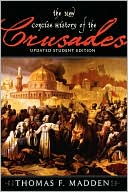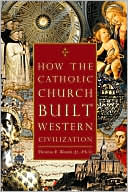Notes and thoughts on the Advent Study on December 1:
Abraham-
I cannot read the story of Abrham being asked to sacrifice his son without thinking of my good and wise friend who asked me, shortly after my fist child's birth, if God asked me to sacrifice my son would I do it? "Before you answer", he said, "think about this- it's not a question of whether you will sacrifice your son, it's just a question of which god you will sacrifice him to." But of course that doesn't have anything to do with our study does it? Or does it?
Isaac
"at once a counterpart of his father in simple devoutness and purity of life, and a contrast in his passive weakness of character, which in part, at least, may have sprung from his relations to his mother and wife. After the expulsion of Ishmael and Hagar, Isaac had no competitor, and grew up in the shade of Sarah's tent, moulded into feminine softness by habitual submission to her strong, loving will."
His life was so quiet and uneventful that it was spent…
"within the circle of a few miles;so guileless that he let Jacob overreach him rather than disbelieve his assurance;so tender that his mother's death was the poignant sorrow of years;so patient and gentle that peace with his neighbors was dearer than even such a coveted possession as a well of living water dug by his own men;so grandly obedient that he put his life at his father's disposal;so firm in his reliance on God that his greatest concern through life was to honor the divine promise given to his race." (Geikie's Hours, etc.)
http://www.christiananswers.net/dictionary/isaac.html
As delineated in Genesis, the figure of Isaac is much less striking than that of Abraham, his father. Yet, by his manner of life, always quiet, gentle, guileless, faithful to God's guidance, he ever was the worthy heir and transmitter of the glorious promises made to Abraham. He was pre-eminently a man of peace, the fitting type of the Prince of Peace, whose great sacrifice on Mount Calvary was foreshadowed by Isaac's obedience unto death on Mount Moria.
The New Testament contains few, but significant references to Isaac (cf. Matthew 8:11; Luke 12:28; 20:37; Romans 9:7; Galatians 4:28; Hebrews 11:17 sqq.; James 2:21). http://www.newadvent.org/cathen/08175a.htm
Jacob
Despite the various difficulties met with in the examination of the Biblical narrative and dealt with in detail by commentators, it is quite certain that the history of Jacob is that of a real person whose actual deeds are recorded with substantial accuracy. Jacob's character is a mixture of good and evil, gradually chastened by the experience of a long life, and upon the whole not unworthy of being used by God for the purpose of His mercy towards the chosen people. The Talmudic legends concerning Jacob are the acme of fancy. http://www.newadvent.org/cathen/08261a.htm
Abraham, Jacob, Isaac
From Thomas Aquinas:
205. The allegorical sense of Matt 1:2. “Abraham begot Isaac, and Isaac begot Jacob, and Jacob begot Judah and his brothers.” The allegory of names. In the division of the spiritual sense into the allegorical, the tropological (or moral), and the anagogical (or final), the first of this order is the Christological sense, that is, the allegory of Christ and of his Church. Matthew, in presenting a carnal genealogy descending from Abraham to Joseph, illustrates the self-humiliation of the Messiah, while Luke, in presenting an adoptive genealogy ascending from Jesus to Abraham and to God, illustrates the priestly dignity of the Messiah, through whom mankind was reconciled to God and we were made his adoptive children. St. Thomas takes up the allegory of names in the genealogy of Matthew. Abraham begot Isaac. The name Abraham means “the father of many peoples,” and it prefigures Jesus, who “brought many children into glory” (Heb 2:10). As Abraham by order of God went out from his native land (Gen 12:4), so did the Divine Word go out (in a certain way) from his heavenly dwelling to become incarnate as Jesus. “I have forsaken my house, I have left my inheritance, I have given the beloved of my soul into the hand of her enemies” (Jer 12:7). When Abraham heard that Sarah would conceive a child, he laughed, saying “I a hundred and Sarah ninety?” (Gen 17:17). And Sarah laughed too, saying “God has made a laughter for me” (Gen 18:10). The name Isaac means “he laughs,” and this name prefigures the conception and birth of Jesus, because Mary rejoiced at her conception of the Savior (Lk 1:47), and the whole world of the elect has rejoiced at the news of the birth of Jesus (Lk 2:10), in the rejoicing that is the spiritual expression of worldly laughter. And Isaac begot Jacob. The name Jacob means “wrestler” (“he grabs the heel”), and we are reminded of how a wrestler overthrows his opponent by grabbing his heel. This name pertains to Jesus, because Jesus overthrew the Devil and his minions (Matt 12:28). "But if I by the Spirit of God cast out devils, then is the Kingdom of God come upon you” (Matt 12:28). And Jacob begot Judah and his brothers. The name Judah means “confession” or “profession,” and it pertains allegorically to Jesus, who said: “I confess to You Father, Lord of Heaven and Earth” (Matt 11:25).7
206. The tropological (moral) sense of Matt 1:2. St. Thomas undertakes to illustrate how a pattern of moral allegory may underlie the genealogy in Matthew. It is not that moral allegory or any kind of allegory needs to underlie these names, but the search for biblical allegory can be spiritually rewarding. St. Thomas assumes the framework of the theological and moral virtues. He suggests, to begin with, that the names Abraham, Isaac, and Jacob, as situated in the genealogy, represent the theological virtues of faith, hope, and charity. Abraham, “the father of many nations,” is “the father of the circumcision” (Rom 4:12) and “the father of those who believe” (Rom 4:11). He is our father in faith. Isaac represents the virtue of hope, which is born of faith (Rom 12:12). Jacob represents the dynamism of Christian charity, as “the wrestler” and as having taken two wives: Leah (“laboring”), representing the active life, and Rachel (“ewe”), representing the contemplative life. The name “Jacob” also implies “supplanter” (Gen 25:23-25; 27:36), and it signifies Christ: “You have cast down beneath Me those who rose against Me” (Ps 18 [19]:43)). http://www.rtforum.org/study/lesson27.html


No comments:
Post a Comment